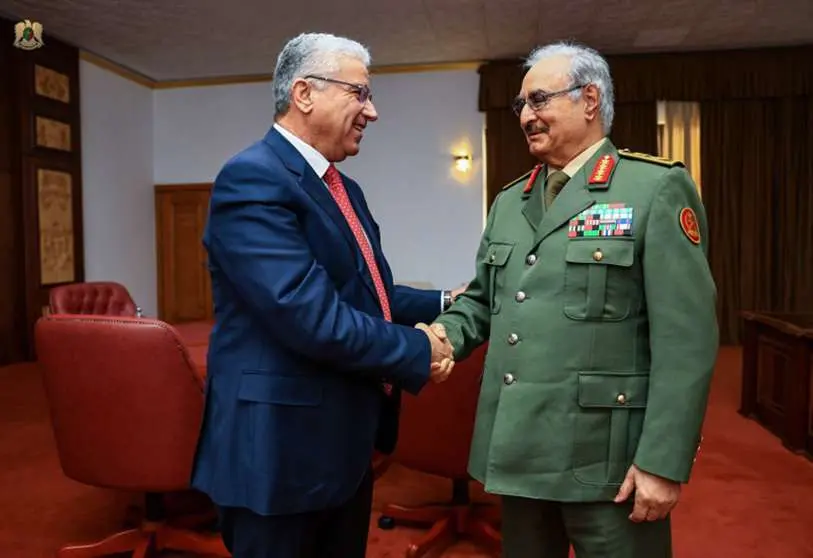Haftar and Bashagha discuss the presence of the Wagner group in Libya during a meeting

The head of the Libyan National Army (LNA), Jalifa Haftar, has met in Benghazi with the parliament-appointed prime minister of Tobruk, Fathi Bashagha, with the aim of paving the way for elections scheduled for the end of the year.
During the meeting, which was also attended by several members of Bashagha's executive, Haftar and the prime minister discussed key issues for the country such as the current political situation, the foreign military presence, the fight against terrorism and border protection.

Among the foreign organisations fighting in the country, the presence of the Wagner group, linked to Russia and Haftar himself, stands out. Wagner mercenaries arrived in Libya in September 2019 to support Haftar's forces during their offensive against Tripoli. However, Russia is not the only country that has sent fighters to the North African nation to defend and expand its interests. Turkey is also estimated to have sent thousands of Syrian mercenaries to fight on behalf of Fayez Sarraj's Government of National Accord (GNA).
The meeting between Haftar and Bashagha comes on the heels of a recent visit to Libya by CIA director Williams Burns, who urged the LNA chief to expel Wagner's remaining fighters. Europe and the US fear that the Russian group could take advantage of the country's oil resources, as it is doing in other African countries where Wagner is present.

In addition to putting pressure on Libya, Washington has sent the same message to Sudan. Secretary of State Antony Blinken stressed the need to expel Wagner from the region during his meeting with Egyptian President Abdel Fattah Al-Sisi in January.
Haftar has tried to avoid showing support for Bashagha since he was appointed prime minister by parliament. Instead, the general has criticised the political authorities - both Bashagha's executive and Abdul Hamid Dbeibé's Government of National Unity - in order to present himself as an alternative to Libyan society.

At the same time, Dbeibé met with the head of the United Nations mission in the country, Abdoulaye Bathily, with the aim of presenting and establishing proposals that would facilitate the holding of elections as soon as possible. Over the weekend, Bathily called for "the unification of institutions as a precondition for breaking the political deadlock".
Libya is going through a new political crisis with two parallel governments: that of Bashagha, appointed by the parliament, and that of Dbeibé, who has assured that he will only hand over power to an elected executive, despite the fact that his mandate has already expired.








